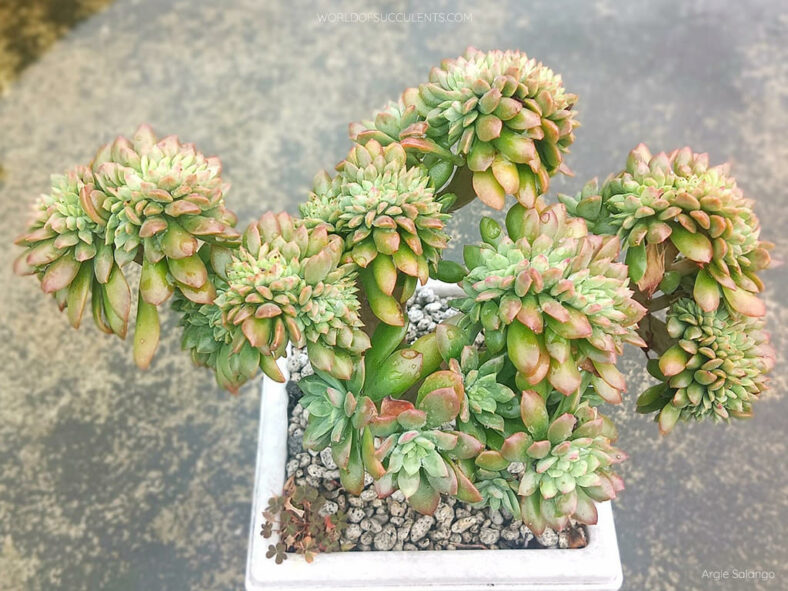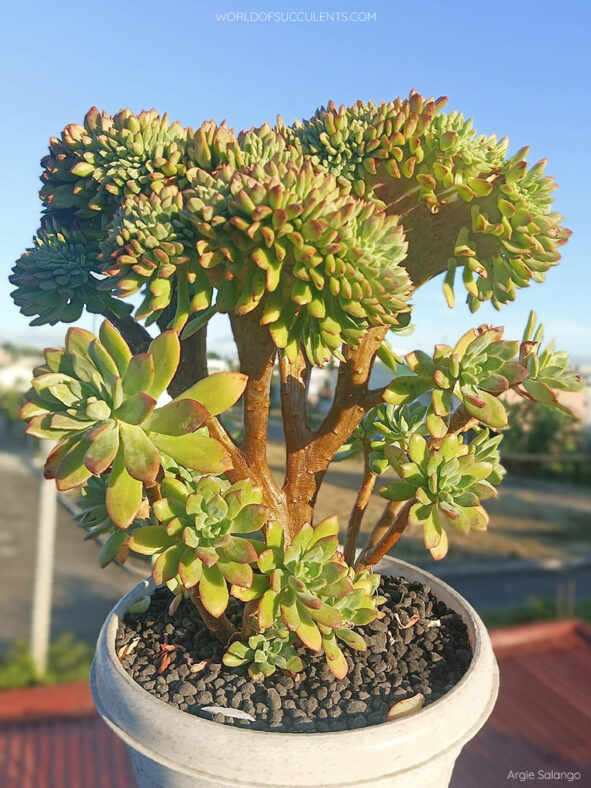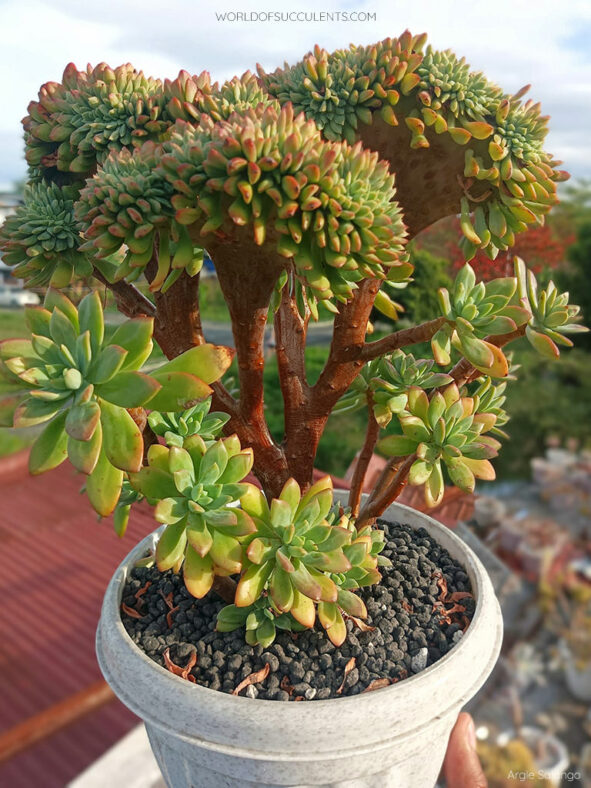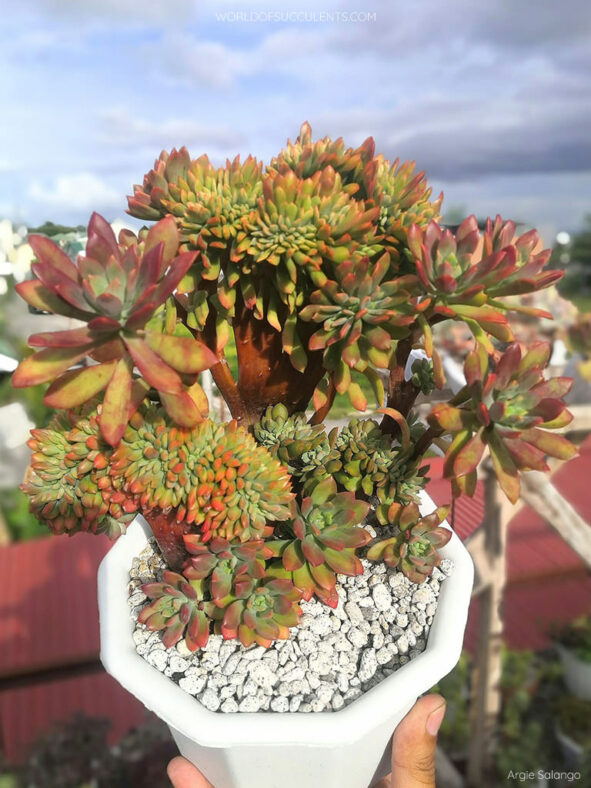Scientific Name
Echeveria 'Minibelle Cristata'
Accepted Scientific Name
Echeveria 'Minibelle'
Scientific Classification
Family: Crassulaceae
Subfamily: Sempervivoideae
Tribe: Sedeae
Genus: Echeveria
Origin
Echeveria 'Minibelle Cristata' is a form of Echeveria 'Minibelle' selected for its crested growth.
Description
Echeveria 'Minibelle Cristata' is a fascinating shrubby succulent with fleshy leaves densely packed along flattened stems. It grows smaller than the normal Echeveria 'Minibelle' but is more interesting in form. The leaves are shorter and narrower. They are silvery-green with reddish margins and tips. When exposed to strong sunlight or cold temperatures, the leaves take on a brilliant shade of terracotta red. Each specimen has a unique shape.

How to Grow and Care for Echeveria 'Minibelle Cristata'
Light: E. 'Minibelle Cristata' prefers full sun to partial shade. If you move your plant outside in the spring, do it gradually. The intense afternoon sun can cause sunburn. During the winter, when your E. 'Minibelle Cristata' is inside, put it near the brightest window in your home. It will stretch if it does not have enough sunlight.
Soil: This succulent needs a potting soil mix that drains quickly. Many growers create their own mix, but commercial succulent potting mixes work well.
Temperature: This plant is a tender succulent, which means it must be brought indoors for the winter to survive. E. 'Minibelle Cristata' can withstand temperatures as low as 30 °F (-1.1 °C). USDA Plant Hardiness Zones 10a to 11b, 30 to 50 °F (-1.1 to 10 °C).
Watering: Provide moderate amounts of water from spring to fall. The "soak and dry" method is the preferred schedule for watering E. 'Minibelle Cristata'. If you have saucers under the pots, empty the water to empty the water after a short time. Water your plant just enough to keep it from shriveling during winter.
Fertilizing: E. 'Minibelle Cristata' grows well without fertilizer but may benefit from the extra nutrients. In spring, use a slow-release or liquid fertilizer diluted 2 to 4 times more than usual and used less often than recommended.
Repotting: Repot the plant only as needed during spring or early summer. To repot your E. 'Minibelle Cristata', ensure the soil is dry before repotting.
Propagation: This succulent is propagated from stem cuttings. Spring is the best time to take cuttings.
Learn more at How to Grow and Care for Echeveria.
Toxicity of Echeveria 'Minibelle Cristata'
E. 'Minibelle Cristata' has no reported toxic effects. It is safe for pets and humans, although it is not advisable to eat it.
Links
- Back to genus Echeveria
- Succupedia: Browse succulents by Scientific Name, Common Name, Genus, Family, USDA Hardiness Zone, Origin, or cacti by Genus
Photo Gallery
Click on a photo to see a larger version.


